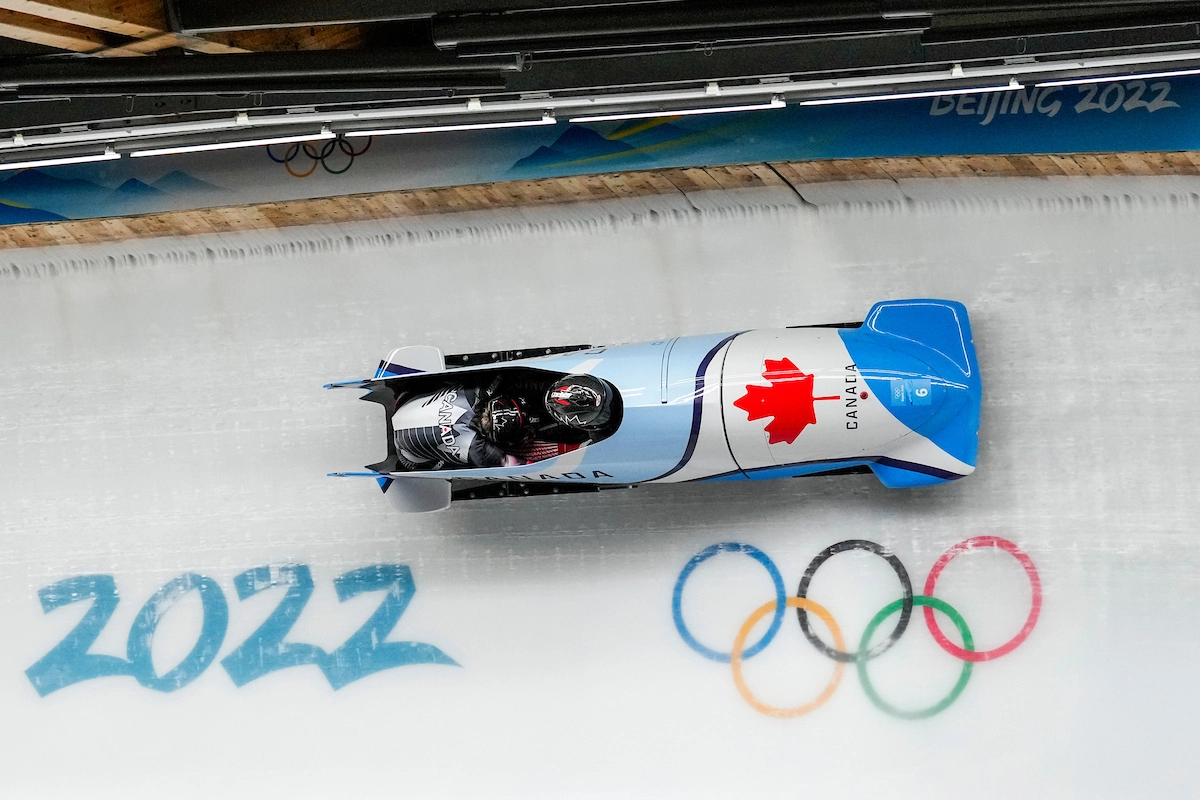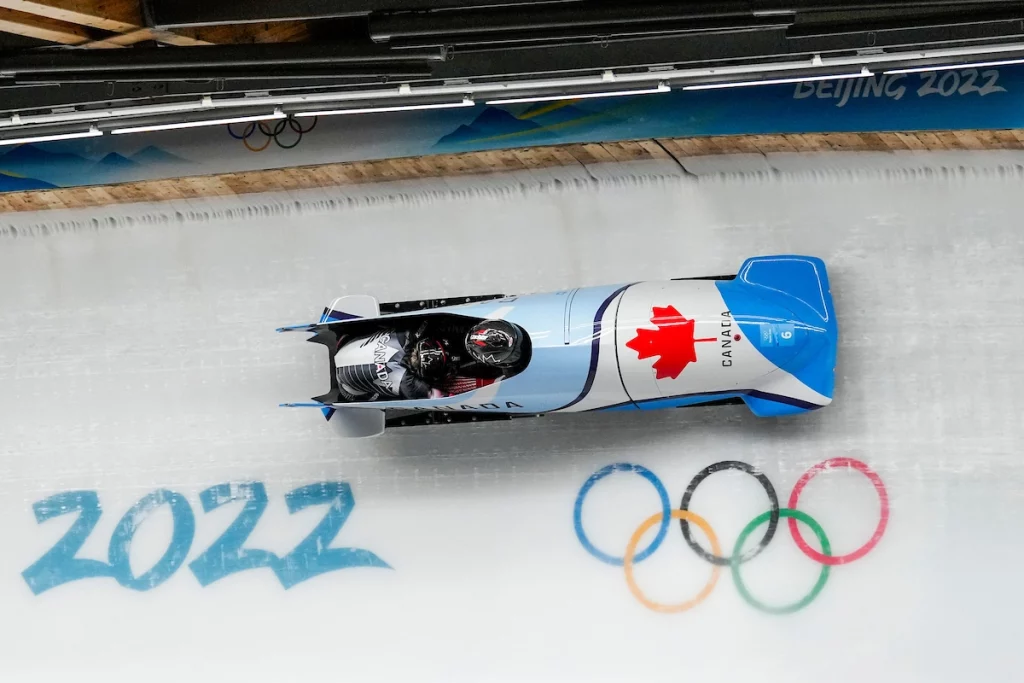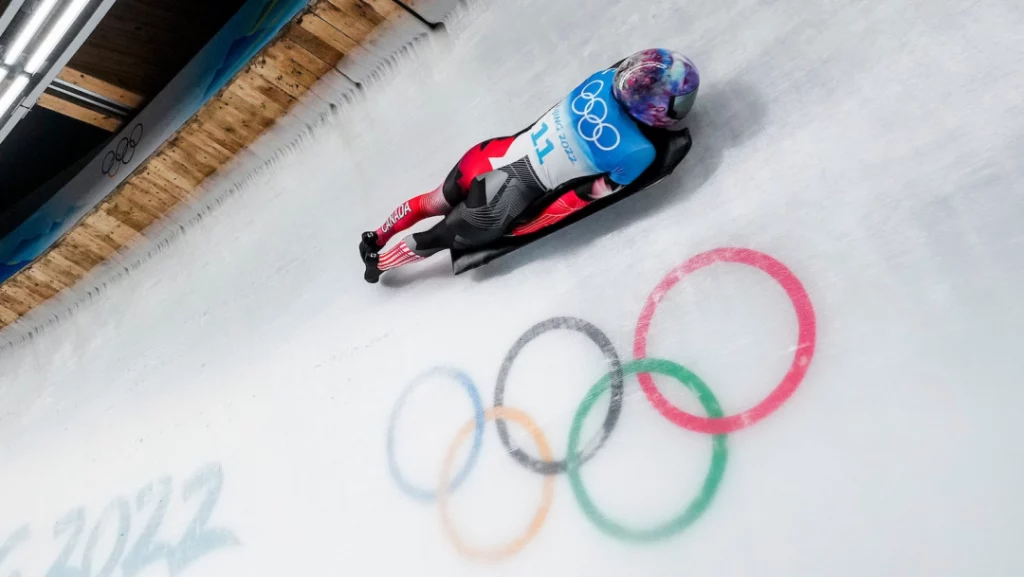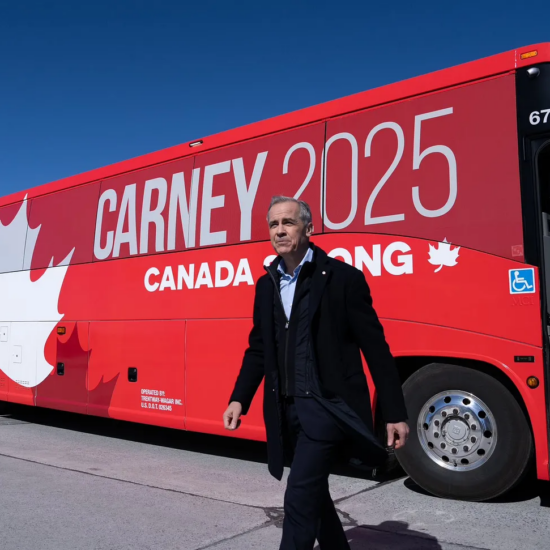
Bob Mackin
More than 90 athletes seeking to reform Bobsleigh Canada Skeleton don’t know what lies around the next curve after the national governing body’s annual general meeting was adjourned Sept. 29 in Calgary.

After a disappointing finish at the Beijing 2022 Winter Olympics, athletes demanded change atop Bobsleigh Canada Skeleton (COC)
President and acting CEO Sarah Storey tabled the annual financial report, but refused to allow a vote on her leadership due to alleged concerns over membership eligibility.
Under federal law, the meeting must continue by Nov. 7, and BCS bylaws require 21 to 35 days notice to members.
Mirela Rahneva, who competed in skeleton at Beijing 2022, would rather have her mind on training for the International Bobsleigh and Skeleton Federation world cup season, which starts Nov. 22-27 at the Whistler Sliding Centre. But the long-term future of the two sliding sports in Canada is at stake.
“A lot of us are hanging around just to kind of see the change happen and maybe if the change is positive, stick around for another Olympics,” Rahneva said in an interview. “I think Canada can be such a medal contender, in skeleton and bobsleigh, there’s so much potential here, we’re just severely under-resourced. That comes from the current leadership.”
In March, after a disappointing Olympics, the group of sliders called for Storey and high performance director Chris Le Bihan to resign over a combination of toxic culture, inadequate safety, lack of transparency and poor governance at BCS. Federal Sport Minister Pascal St-Onge ordered an audit in April.
Rahneva and others thought the annual general meeting would be their chance to turn the corner and elect sport psychologist Tara McNeil to replace Storey.
Frustration with Storey’s leadership had festered since her original 2014 election. As vice-president, she helped draft a new version of BCS bylaws in 2013 and was accused of using those new rules to win the presidency. Storey is also the BCS acting chief executive, despite the Canadian Sport Governance Code stating that no board member should be chief executive during their term as a director. Father Bob Storey is the former Olympic bobsledder and IBSF president and her brother Max is an Olympic bid and organizing consultant.
During the meeting, Storey thwarted motions for the vote because BCS said it had received “credible information” that there had been irregularities in verifying memberships through BCS’s provincial affiliates, so it was unable to determine eligibility to vote or be elected to the board.
“It is of the utmost importance to the board of directors of BCS that the fairness and integrity of the decisions to be made at the annual general meeting of BCS is preserved,” said a statement from BCS. “BCS is now working with its provincial partners to verify its members for the purpose of the AGM and to give notice for a date and time to reconvene.”

Mirela Rahneva at Beijing 2022 (Canadian Olympic Committee)
The financial report showed Sport Canada contributed 73% of BCS’s $4.12 million revenue in the year ended March 31, 2022, which also included $412,600 from the Canadian Olympic Committee, $278,176 from sponsors, and $210,530 from IBSF.
BCS was left with almost $21,000 in surplus after spending more than $4.1 million. The biggest line item was the national bobsleigh team at $2.29 million. Skeleton cost nearly $462,000.
Rahneva said the meeting had been scheduled for just two hours after bobsledders had finished testing and training, but that didn’t stop them from attending. She said she unsuccessfully pushed for the vote, but the meeting ended up being “very much aligned with how the organization has been run for the past eight years.”
“I would like to hold BCS accountable to the bylaws and policies and the procedure of the meeting,” Rahneva said. “And so the motion was seconded right away, when I first put it forward, by another athlete. I said you guys have to be accountable to your policies, you can’t just use the policies when it suits you.”
Jaclyn LaBerge, a former skeleton athlete, expected surprises, but is disappointed the vote was delayed. She had been working under the rules to bring proxy memberships and votes from athletes, family and alumni unable to attend the meeting in-person. But, suddenly, two days before the meeting, BCS wanted provincial affiliates to notarize their membership lists.
The meeting started a half-hour late and lasted more than four hours, including a break that was announced for five minutes, but lasted 90. LaBerge called it a “debacle,” but was encouraged that Sport Canada and AthletesCan, the association of national team athletes, sent observers. She hopes one or both will intervene.
“I walked out of there being like, the athletes are 100% united in that room,” LaBerge said.
On Aug. 1, the newly formed federal Office of the Sport Integrity Commissioner said it had no jurisdiction to investigate BCS, because BCS had not signed-on to the program. That prompted another letter to St-Onge and the heads of Own the Podium, Canadian Olympic Committee and Sport Canada, expressing frustration that the Athlete Facilitation Committee had made no headway.
“We have seen no acknowledgement, attention, or resolution by BCS leadership and administration to address the concerns athletes have raised,” said the Aug. 12 letter.
A request for comment from St-Onge was not fulfilled before deadline.
Support theBreaker.news for as low as $2 a month on Patreon. Find out how. Click here.











